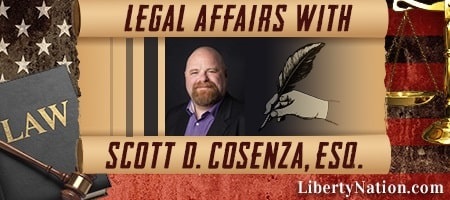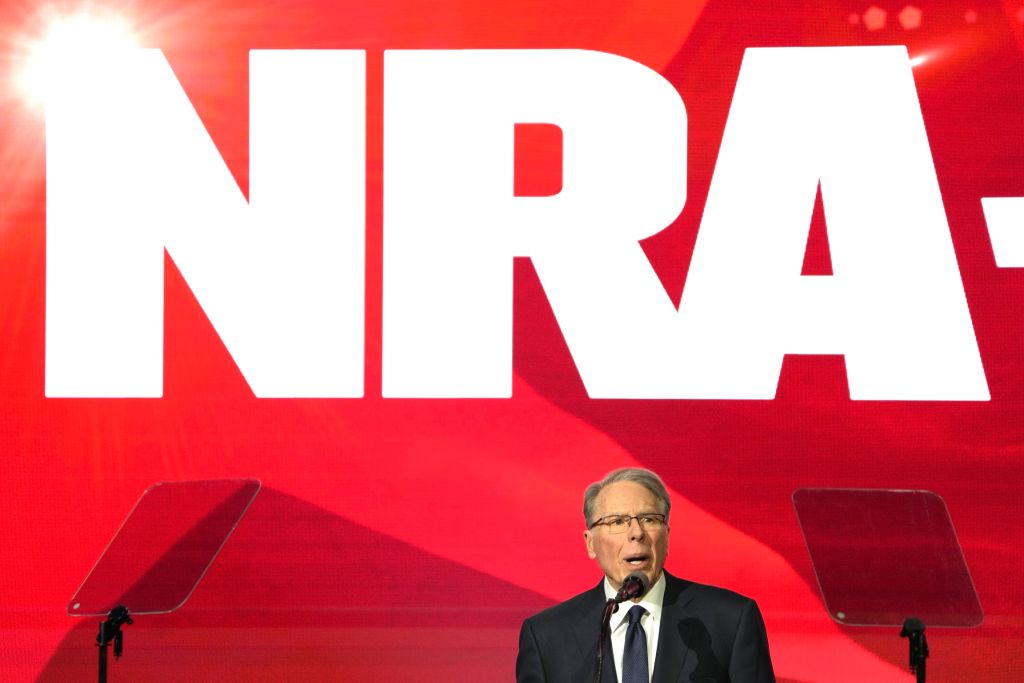The ACLU has announced it will represent the NRA against the state of New York at the Supreme Court. The case is National Rifle Association v. Vulloat and the gun rights group against New York authorities for pressuring companies they regulated to shun the NRA. The once-great lion of civil rights defense announced the news on X:
“We’re representing the NRA at the Supreme Court in their case against New York’s Department of Financial Services for abusing its regulatory power to violate the NRA’s First Amendment rights.
“The government can’t blacklist an advocacy group because of its viewpoint.”
ACLU Finds Their Copy of the Bill of Rights
 The NRA’s original lawyer was Eugene Volokh, a UCLA law professor, and publisher of The Volokh Conspiracy, a well-subscribed blog authored by law professors. It published “American Civil Liberties Union, RIP” in 2018, saying, “the ACLU’s actions over the last couple of months show that the ACLU is no longer a civil libertarian organization in any meaningful sense, but just another left-wing pressure group, albeit one with a civil libertarian history.”
The NRA’s original lawyer was Eugene Volokh, a UCLA law professor, and publisher of The Volokh Conspiracy, a well-subscribed blog authored by law professors. It published “American Civil Liberties Union, RIP” in 2018, saying, “the ACLU’s actions over the last couple of months show that the ACLU is no longer a civil libertarian organization in any meaningful sense, but just another left-wing pressure group, albeit one with a civil libertarian history.”
Professor Volokh celebrated this news, however, writing he was “delighted” the ACLU would be representing the NRA and was especially pleased that David Cole, the ACLU’s legal director, would argue the case. “Cole’s presence at the lectern and the ACLU’s presence on the briefs will help convey the core message to all the Justices: The case is about everyone’s free speech rights, not just the NRA’s. Cole has argued six cases before the Court, all connected to the First Amendment…”
But Still…
Lest anyone get the impression the ACLU thought the NRA or the Second Amendment were above contempt, the group followed up its announcement post with another stating for the record, “We don’t support the NRA’s mission or its viewpoints on gun rights, and we don’t agree with their goals, strategies, or tactics.” Given its recent history, however, any ACLU defense of freedom instead of the reverse is a welcome change.
The High Court will answer whether the First Amendment allows a government regulator to threaten regulated entities for doing business with a disfavored speaker. Maria T. Vullo was the Superintendent of the New York Department of Financial Services (DFS). She used her position to lean on the companies she regulated to abandon any business ties with the NRA. In a press release, Vullo said, “DFS urges all insurance companies and banks doing business in New York to join the companies that have already discontinued their arrangements with the NRA.”
All Go In NYC
The news capped a week with multiple lower court decisions over New York’s new gun laws. They were a mixed bag, with some provisions upheld while others were forbidden from being enforced.
The Second Circuit Court of Appeals ruled recently in separate cases that New York’s gun laws were improper in part yet legal in most respects. One provision they cast aside was the requirement that applicants submit a list of social media accounts from the previous three years. In a 261-page opinion, the Court said that even anonymous social media handles should be private: “It is uncontroversial that the First Amendment protects the right to speak anonymously.”




